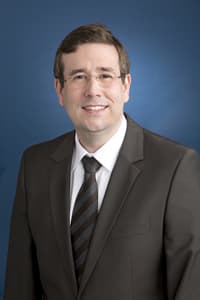
Franz Kellermanns, the Addison and Gertrude Reese Endowed Chair in International Business and professor of management, has received a best paper award with two co-authors for research on family businesses.
Kellermanns and co-authors Thomas Rieg of WHU – Otto-Beisheim School of Management and Sabine Rau of Kings College received the “Best Family Business Paper” award from the Academy of Management Entrepreneurship Division during the organization’s annual meeting. Their paper was entitled "Measuring the Family: Development of Scales for the Assessment of Business-owning Families."
The Academy of Management annual meeting is the premiere conference for more than 10,000 students, academics, scholars and professionals in the scholarly management and organization space.
While “family” is a variable that distinguishes family firms from other organizational forms, surprisingly little attention has been paid to the scholarly examination of business-owning families, Kellermanns said. A family business is owned and run by family with the intention to pass it on to the next generation.
“Family business is the most prevalent form of business worldwide – up to 60 percent of GDP and employing large percentage of the labor force,” he said. “Family businesses are an under-researched area. Given the importance of family business to the economy, we need to understand how the family is structured and behaves both inside and outside the firm in order to understand family firm behavior.”
Kellermanns and his co-authors collected data from 245 later-generation family firms in Germany. The researchers developed a scale that is different from other types of businesses to measure success for family business.
“We examined how the family business is run and how decisions are made and how this differs compared with other kinds of companies. Through our research, we discovered important decision-making processes for family businesses,” Kellermanns said.
The Belk College professor noted two measures stood out in the research: the ability of a family business to adapt and deal with change and new ideas and the cohesion and strength of relationships among family members.
“With family businesses, it is important to understand decisions are not made without taking the family dynamics into account,” he said. “Decisions are not made just to maximize profit – there is more focus on non-economic goals for family businesses. It’s important for family businesses to recognize these goals drive their behavior and to put in place safeguard mechanisms to protect family members, employees and relationships,” he said.
“Any type of governance of a family business needs to reflect the current situation and future as well, to recognize that shareholders change and to anticipate future complexity,” Kellermanns added.
The paper will be published in the proceedings of the international conference.